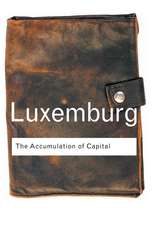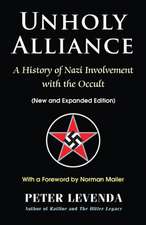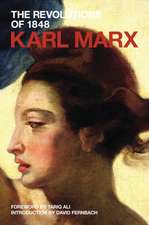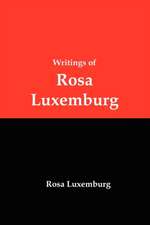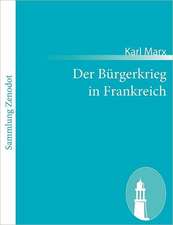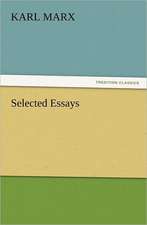The Communist Manifesto
Autor Karl Marx Cu Friedrich Engelsen Limba Engleză Paperback
| Toate formatele și edițiile | Preț | Express |
|---|---|---|
| Paperback (11) | 30.98 lei 22-33 zile | +9.97 lei 6-12 zile |
| Vintage Publishing – 31 mar 2010 | 30.98 lei 22-33 zile | +9.97 lei 6-12 zile |
| CREATESPACE – | 36.46 lei 3-5 săpt. | |
| CreateSpace Independent Publishing Platform – | 45.18 lei 3-5 săpt. | |
| Penguin Books – iun 2011 | 77.15 lei 3-5 săpt. | |
| CREATESPACE – | 91.02 lei 3-5 săpt. | |
| – | 49.39 lei 6-8 săpt. | |
| BLURB INC – 8 ian 2019 | 75.79 lei 18-23 zile | |
| Jaico Publishing House – 2 ian 2018 | 76.21 lei 6-8 săpt. | |
| Simon & Brown – 25 sep 2018 | 79.53 lei 39-44 zile | |
| Simon & Brown – 31 aug 2011 | 80.18 lei 39-44 zile | |
| – | 116.76 lei 6-8 săpt. | |
| Hardback (4) | 132.42 lei 39-44 zile | |
| – | 132.42 lei 39-44 zile | |
| – | 133.13 lei 39-44 zile | |
| Simon & Brown – 18 sep 2010 | 134.53 lei 39-44 zile | |
| Simon & Brown – 25 sep 2018 | 134.53 lei 39-44 zile |
Preț: 36.46 lei
Nou
Puncte Express: 55
Preț estimativ în valută:
6.98€ • 7.26$ • 5.85£
6.98€ • 7.26$ • 5.85£
Carte disponibilă
Livrare economică 20 februarie-06 martie
Preluare comenzi: 021 569.72.76
Specificații
ISBN-13: 9781484192641
ISBN-10: 1484192648
Pagini: 54
Dimensiuni: 152 x 229 x 3 mm
Greutate: 0.09 kg
Editura: CREATESPACE
ISBN-10: 1484192648
Pagini: 54
Dimensiuni: 152 x 229 x 3 mm
Greutate: 0.09 kg
Editura: CREATESPACE
Descriere
Descriere de la o altă ediție sau format:
WITH AN INTRODUCTION BY DAVID AARONOVITCHThe Communist Manifesto was first published in London, by two young men in their late twenties, in 1848. Maintaining that the history of all societies is a history of class struggle, the manifesto proclaims that communism is the only route to equality, and is a call to action aimed at the proletariat.
WITH AN INTRODUCTION BY DAVID AARONOVITCHThe Communist Manifesto was first published in London, by two young men in their late twenties, in 1848. Maintaining that the history of all societies is a history of class struggle, the manifesto proclaims that communism is the only route to equality, and is a call to action aimed at the proletariat.
Notă biografică
Born in Westphalia in 1820, Friedrich Engels was the son of a textile manufacturer. After military training in Berlin and already a convert to communism, Engels went to Manchester in 1842 to represent the family firm. A relationship with a mill-hand, Mary Bums, and friendship with local Owenites and Chartists helped to inspire his famous early work, The Condition of the Working Class in England in 1844. Collaboration with Marx began in 1844 and in 1847 he composed the first drafts of the Manifesto. After playing an active part in the German revolutions, Engels returned to work in Manchester until 1870, when he moved to London. He not only helped Marx financially, but reinforced their shared position through his own expositions of the new theory. After Marx’s death, he prepared the unfinished volumes of Capital for publication. He died in London in 1895.
Karl Marx was born in 1818 in Trier, Germany and studied in Bonn and Berlin. Influenced by Hegel, he later reacted against idealist philosophy and began to develop his own theory of historical materialism. He related the state of society to its economic foundations and mode of production, and recommended armed revolution on the part of the proletariat. Together with Engels, who he met in Paris, he wrote the Manifesto of the Communist Party. He lived in England as a refugee until his death in 1888, after participating in an unsuccessful revolution in Germany. Ernst Mandel was a member of the Belgian TUV from 1954 to 1963 and was chosen for the annual Alfred Marshall Lectures by Cambridge University in 1978. He died in 1995 and the Guardian described him as 'one of the most creative and independent-minded revolutionary Marxist thinkers of the post-war world.'
Karl Marx was born in 1818 in Trier, Germany and studied in Bonn and Berlin. Influenced by Hegel, he later reacted against idealist philosophy and began to develop his own theory of historical materialism. He related the state of society to its economic foundations and mode of production, and recommended armed revolution on the part of the proletariat. Together with Engels, who he met in Paris, he wrote the Manifesto of the Communist Party. He lived in England as a refugee until his death in 1888, after participating in an unsuccessful revolution in Germany. Ernst Mandel was a member of the Belgian TUV from 1954 to 1963 and was chosen for the annual Alfred Marshall Lectures by Cambridge University in 1978. He died in 1995 and the Guardian described him as 'one of the most creative and independent-minded revolutionary Marxist thinkers of the post-war world.'


